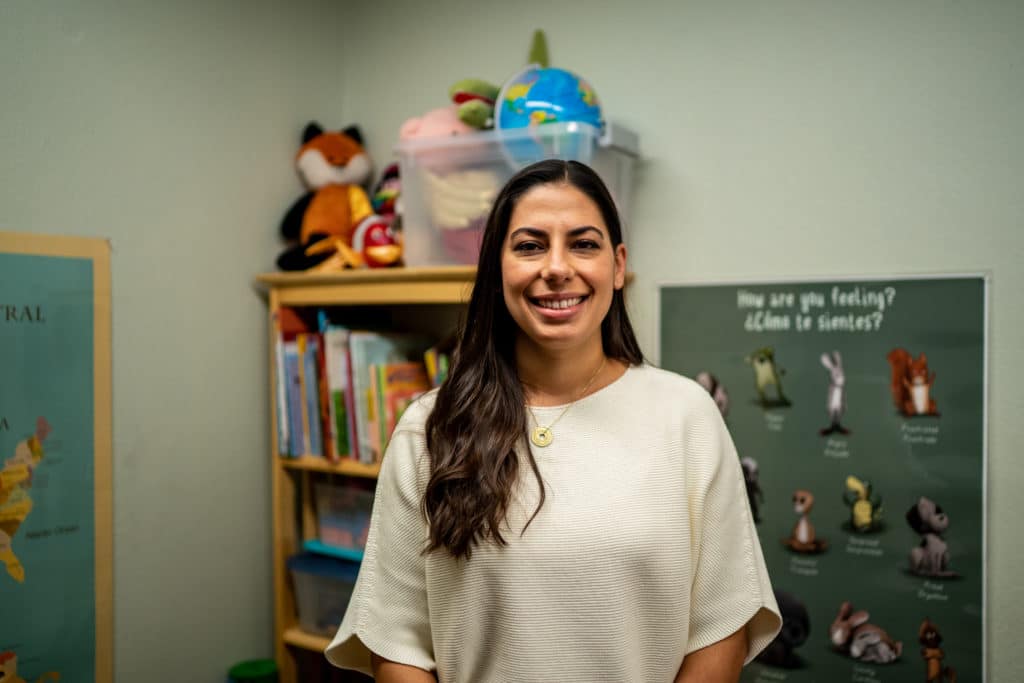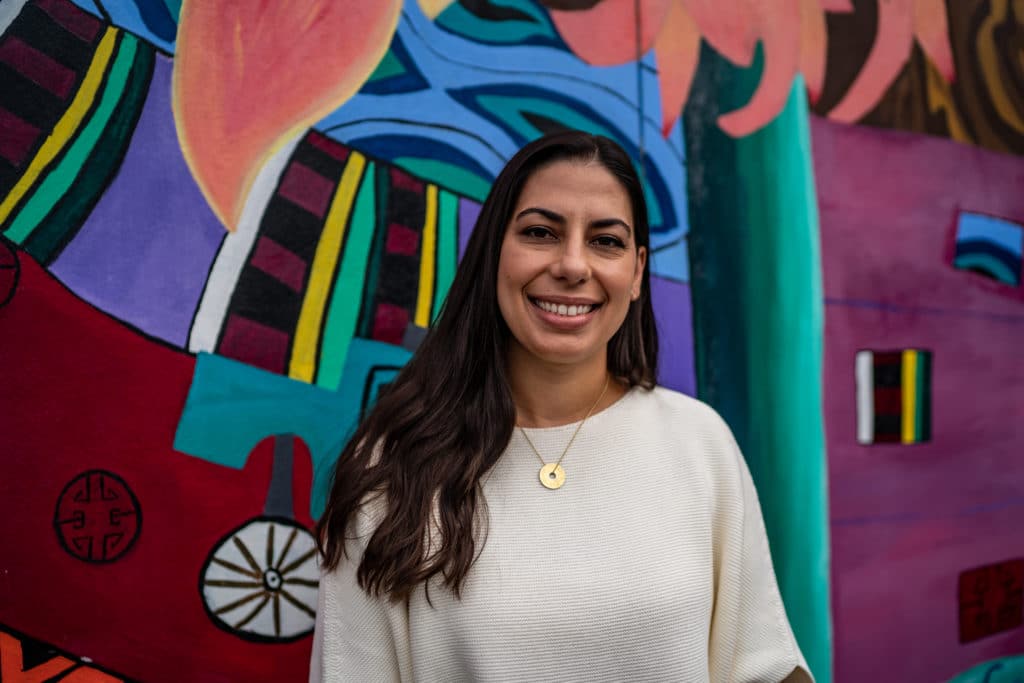Q&A with Elaine Tannous, Bilingual Mental Health Clinician
December 9, 2021

When the pandemic hit, people in the Canal were especially vulnerable. Many faced enormous stressors like health impacts, financial instability, and a lack of access to safety net resources based on their immigration status. We spoke with Elaine Tannous, LMFT, Bilingual Mental Health Clinician, about the challenges people faced accessing mental health services and how our licensed, no-cost therapy services fill a critical need.
Can you describe the impact of chronic stress on a person?
When someone is under chronic stress, the learning, thinking, planning part of their brain is offline because they’re focused on survival, doing their best to get through the day-to-day. If someone is overwhelmed by stress or dealing with unaddressed mental health issues without the tools to cope, the challenges are compounded.
Tell us about the impact of the pandemic on the community you serve.
Referrals to our mental health services have more than doubled. The severity of mental health distress we are seeing has also increased. Many young people in our University Prep program experienced greater levels of anxiety and depression resulting from social isolation, the challenges of online learning, and having to assume more responsibilities at home to support their parents and siblings.
How did your team respond?
Practically overnight, we began to offer telehealth therapy. We also ramped up our mental health trainings so front-line staff had the tools to respond to signs of emotional distress and refer clients to our Mental Health team. This helped us provide more holistic and client-centered support as a trauma-informed service provider.
Can you describe the kind of work you do with a client?
One client had been working at his job for 15 years when he was laid off early in the pandemic. As a father supporting a family of five, the stress of unemployment and fear for his family’s well-being began to impact his mental health. He started experiencing depression, panic attacks, and short-term memory loss. His relationships with family members became strained, and he began to withdraw from others.

Have things improved for him?
Yes. Over three months of telehealth sessions we explored the experiences underlying and triggering the symptoms. We help set weekly goals for him to incorporate stress management and mindfulness techniques, and explored ways to repair and strengthen relationships with his family.
How can people support the program?
Generous gifts from the community are helping us make a profound impact on people’s lives. My dream is that we will have enough resources to provide each person who comes to us seeking mental health support with the help they need to achieve safety, wellness and stability.
RESOURCES FOR THE COMMUNITY ARE AVAILABLE NOW
Our Behavioral Health team offers trauma informed therapy services to children, adolescents, adults, couples and families. Therapy groups are also offered according to needs expressed by the community. Our services are free of cost and do not require insurance.
Para obtener más información en español, consulte estos recursos.